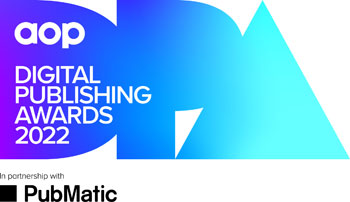
Q: What have been the stand-out commercial trends over the past twelve months?
Amanda:
We’ve been doing many more year long packages with our commercial partners. They’re looking for a deeper engagement with our audience and a more thoughtful approach to tie in with their commercial strategies.The return to in person events has obviously been big too. Whilst people are very pleased to meet in person again, we see them being much more discerning on what they attend. There’s a push for more value for their time. I’m not sure you can get away with doing the same as you did pre-pandemic and we’re certainly being more mindful of the delegate experience.
Our recuring membership / subscription revenues are growing well and becoming an even bigger contributor to the bottom line.
Finally, I’d say digital is still incredibly strong, including digital events. I don’t mean replicas of conferences online, more tailored experiences, short and to the point using the best of what digital has to offer.
Dominic: Over the last few years, we’ve seen an increasing shift towards deeper, direct relationships with clients to create really engaging cross-media campaigns that help them reach our audiences in the most effective way. By working in partnership in this way, we can create really integrated audience and creative propositions that deliver significant commercial value to the client.
Measurement is increasingly a focus as the requirement grows to demonstrate deep engagement and shift attitudinal metrics. Wise brands are doubling down on first party data and wanting to understand those audiences and activate against them in increasingly innovative and sophisticated ways.
Finally, it’s worth underlining that purpose (across DEI/ESG) has been a trend of increasing importance over the past few years. Consumers want to see companies authentically act in these areas, and produce their products ethically. In turn, that means our advertising partners want to work with media owners who are also acting authentically in what they do.
Q: What have been the stand-out content trends over the past twelve months?
Amanda:
Curated content around specific themes is well received. Off-diary news and analysis are, as ever, extremely important to our audiences. Quality over quantity delivered in a variety of formats.Dominic: Across the industry, I think there’s been a real recognition that quality content matters. For too long, the industry has been distracted by the chase for eyeballs, leading to low quality content that drives numbers but not engagement. That approach has failed, and so brands are increasingly looking for media partners who can offer high quality, original content that really engages with its audience.
As we emerge from two years of lockdowns and turbulence, there has also been a very obvious shift to shared human values; a more hopeful and equitable type of brand communication. People are more interested in what brands stand for than ever before. Likewise, we have seen people turn to us for inspiration and information – both supporting people through lockdown and giving them ideas. We have seen growth in traffic to content about financial advice (for individuals and SMEs), holiday inspiration, what to watch / see / read / listen to, what to buy and what cars to drive.
And as we pivot to a digital-first approach, content is increasingly presented in more engaging, interactive formats that fit the reader’s mindset based on the platform. Data journalism is increasingly coming to the fore.
Q: What have been the stand-out audience trends over the past twelve months?
Amanda:
There’s much more emphasis on community, even down to micro-communities on a particular topical subject.Working from home, at least part of the week, seems here to stay and that sometimes makes actually speaking to our audience a challenge especially in large companies and where you don’t have mobile numbers.
Dominic: The transition to a post-cookie world has been one of the most significant shifts in digital advertising to date and it’s a process that’s still ongoing. It’s a positive change for media owners as it positively revalues the first party data relationships that publishers have with their consumers.
It’s also clear that we’re in an era of unprecedented technological and social innovation; content isn’t one-way or ‘owned’ anymore, it is interactive, ever-evolving and often co-created. Our audiences participate more than ever before, in myriad different channels and environments, and that requires new skills to be brought into our business and creates new revenue opportunities. Examples include our influencer marketing agency, The Fifth, our experiential business, News Live and our soon-to-launch new TV network, TalkTV.
Q: In what areas would you like to see publishers make bigger strides in the year ahead?
Amanda: I think probably looking forward rather than backwards. It’s been fantastic to see the sheer amount of creativity the pandemic has unleased even if it was born out of necessity initially. I’d hope we can continue with this level of innovation and meet the needs of our audiences and commercial partners even better.
I’ve seen the publishing industry become much more confident through the pandemic, realising we have a unique relationship of trust and expertise with our audiences all year round and capitalising on it, something the events pure-plays are now trying to replicate. I’d hope we can deepen that relationship through better use of digital going forward.
Dominic: All publishers need to continue to drive diversity and inclusion across the industry. It’s not something that can change overnight, but it requires sustained effort over a number of years to make the industry more representative of wider society.
There’s also lots of work to be done around trust – promises that are easy to make, but not always to keep. This is intrinsically linked to themes like diversity & inclusion, purpose, sustainability, but also how publishers behave in general. Certainly, having quality journalism that serves broad communities and ensures more voices and opinions are heard is a fundamental focus.
We are better together – as our industry partnerships across both Ozone and Octave have proved. And whilst we’ve made some good progress, the open internet will prosper with more collaboration and communication between publishers.
Finally: Measurement and Insight. Marketers need to know that their budgets are delivering effective returns. Aligned measurement where the industry comes together is essential. The continued great work that Newsworks does will be pivotal here.
Q: Which of the AOP Award categories are you personally most looking forward to judging?
Amanda:
I’m happy whichever category I end up judging. I always learn something interesting and it’s great to see the passion everyone has for their brands.Dominic: Our industry is powered by the people that work in it, so I find the individual categories some of the most rewarding to judge. It’s particularly exciting to look at the emergent talent that will lead our industry in the future and for that reason, the ‘Rising Star’ category is my personal favourite.
Q: When a person or a team within your own organisation has won an AOP award in the past, how did you celebrate and how did you capitalise on the award win?
Amanda:
We try to attend the award ceremony with the whole team if we are short-listed. It’s lovely to be part of an event and it’s obviously a great feeling if you win! There’s an amazing feel-good factor to lifting an award and we tell as many people internally and externally as we can!Dominic: Our CEO sent a trolley full of champagne when we won digital sales team of the year and operations team of the year. That was in 2019 and it was a brilliant unifying moment for relatively new teams.
Q: When judging, what are you particularly looking for in the entries?
Amanda:
I like to see the passion coming through. I always look for hard facts to back up the claims, preferably some numbers and of course testimonials do help. You can always use percentages to illustrate growth if numbers are commercially sensitive though I like to know if it is a big number or a small number to start off with!Dominic: Firstly, I look for innovation, something that’s not just a great execution of an existing practice but something new and exciting that moves the game on. Beyond that, I’m always looking for entries that demonstrate a commitment to more than just making money. Whether that be D&I, sustainability or something else – I think it's important that we’re constantly thinking about how our work can improve the world as well as our own bottom lines.

About the AOP Digital Publishing Awards
The AOP Digital Publishing Awards celebrate the talents and skills of the individuals and teams working to create, deliver, and monetise quality online content. Winning an AOP Award demonstrates to your team, to your readers, and to your clients that your online publishing brand is the leader in its field – that you are investing in the quality journalism, innovative thinking, and digital tech that is essential to providing value and driving growth, says the AOP.
Awards timetable
- Entry deadline: 24th March
- Shortlist announcement: 27th April
- Awards Ceremony: 15th June
Contact: awards@ukaop.org










